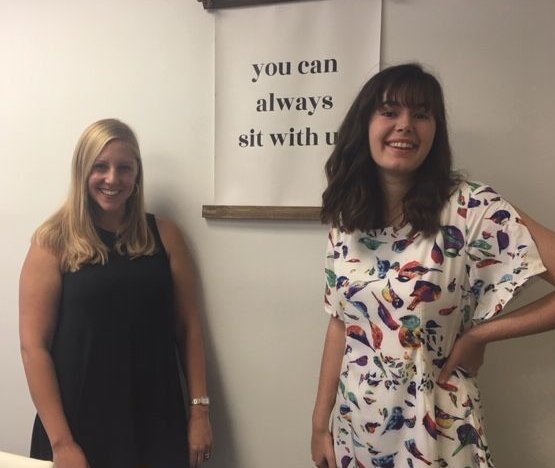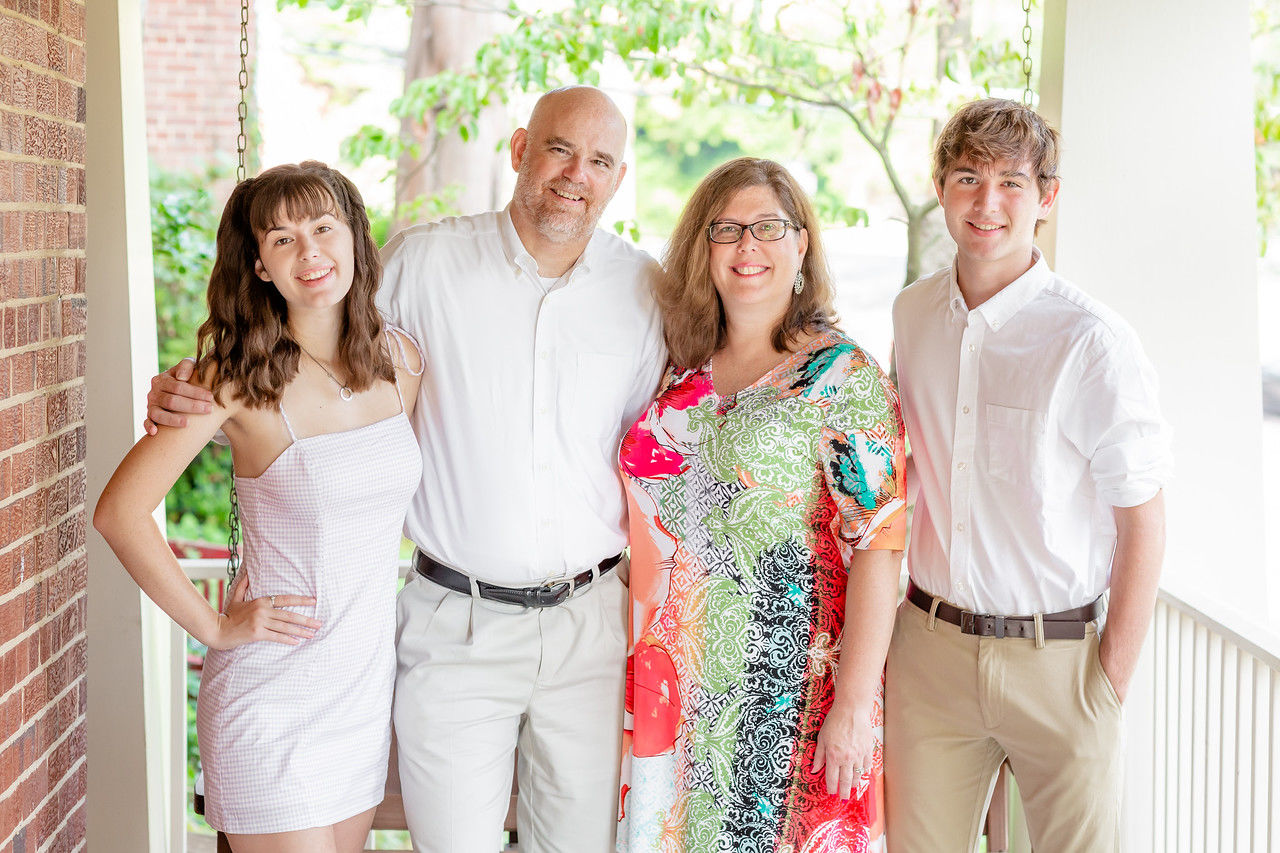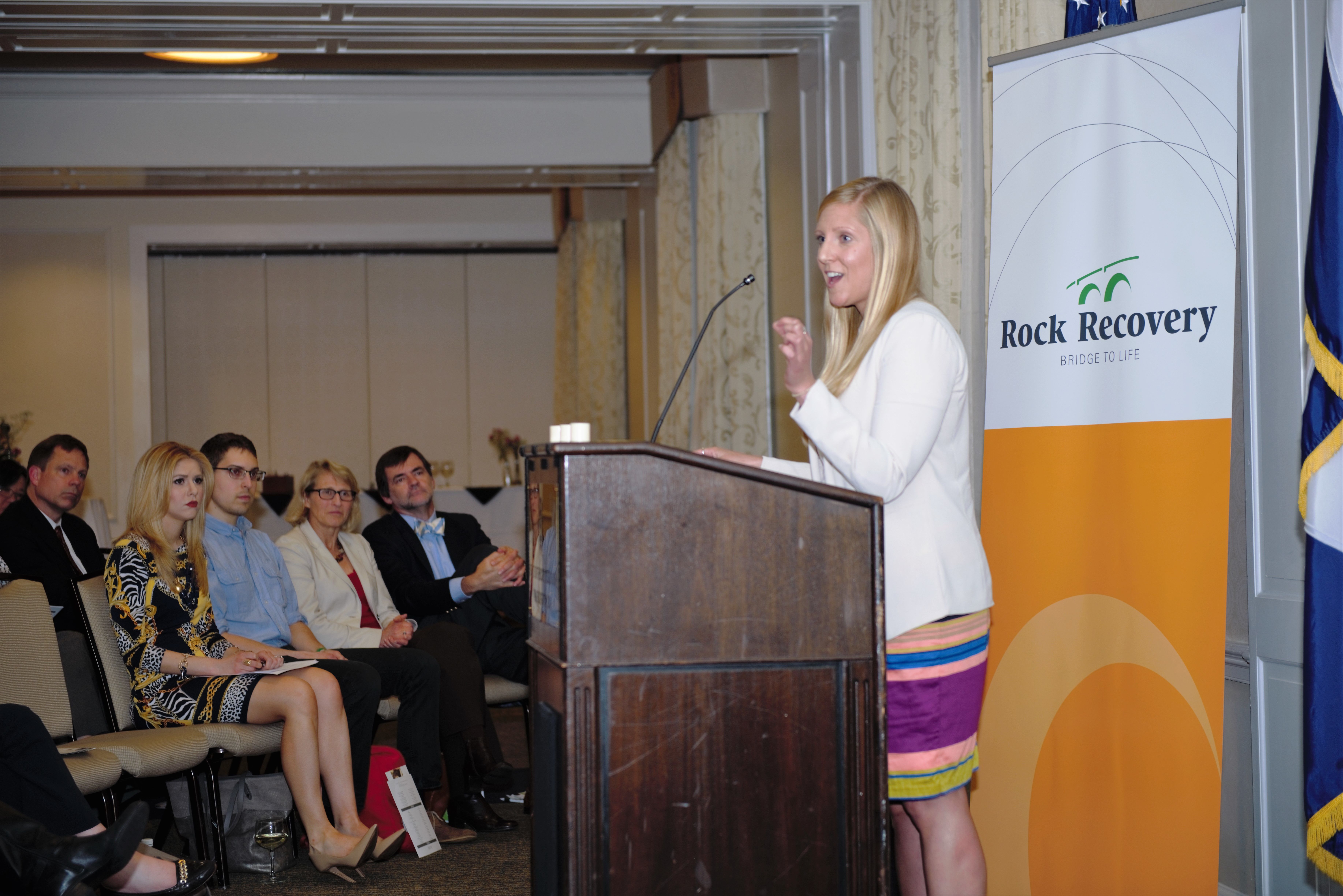This is the second of a three-part series on WTOP.com examining eating disorders, their impact and the road to recovery.

Maya Ewart, now a junior at the University of Virginia, knew something was wrong when she turned 14. She was spending too much time in front of the mirror, tearing apart her appearance.
“Meals became snacks. I think I played it off as, ‘Oh, you can have it. Oh, I’m not hungry’ … but gradually no meal was complete.”
Ewart confided in a friend, who urged her to tell her parents. She took her friend’s advice.
“I am crying downstairs; my mom came downstairs. She said, ‘What’s wrong?’, I said, ‘Mom, I need treatment.’ I came to them.”

But many parents are completely surprised by a diagnosis, because the disease can be hidden for months to years.
Rick Deise was surprised when he found out his daughter had anorexia. In 2000, when Kristen Deise was 14, he took her to doctors to investigate sports injuries. She was referred to an eating disorders specialist by a pediatric gynecologist.
Looking back, he said, there were some warning signs.
“She did not have her period for three or four months; she had injuries from sports — volleyball, soccer and tennis — that were becoming chronic and reoccurring, and she started having rituals with her eating. There was a huge shift in her behavior. That was the third sign that alerted me,” he said.
Yet, he said, he was not prepared for the diagnosis.
“I wouldn’t say shocked; I was more dumbfounded. I was like, ‘What is that?’ No way did we expect to hear ‘Yes, she has anorexia nervosa, and she needs to be admitted … now.’”
Parents of children with eating disorder walk a tightrope.
The National Eating Disorders Association suggests parents not become overly combative with their children in the face of starvation. But there is no specific rule book for parents to follow.
“If you’re worried, it is important to reach out, so family-based therapy is a critical piece of the puzzle,” said Dr. Irena Rovira, with the Center for Eating Disorders at Sheppard Pratt, in Baltimore.
At the height of his daughter’s illness, Deise said, meals were incredibly stressful.
“I am a dad who fixes thing — anything that was broken. My daughter was broken, and I had no way to fix it,” he said.
It took three years of treatment, and three inpatient stays in Baltimore and in Philadelphia, for his daughter to overcome her eating disorder.
“There wasn’t a script of what to say. I think the theme, more than others, if I can find a common thread that they shared, is ‘Food is medicine.’ If you want to get better, you are going to have to eat food.”
During that ordeal, Deise learned that while he was part of the solution, he wasn’t the answer.
“It was overwhelming; it was so vast. It took about a year, but I had to back off and let the professionals guide the treatment.”
How social media, dieting culture reinforce eating disorders — and how parents can help
Social media can be a great way to share and connect with people — but researchers say there is a dark side to image-based platforms and their impact on people trying to recover from eating disorders.
Dr. Steven Crawford, a co-director of the Center for Eating Disorders at Sheppard Pratt, said social media may be tied to an increase in body dissatisfaction and disordered eating.
Specialists such as Crawford say eating disorders mask an underlying problem, and the starving brain can then propel the eating disorder into a downward spiral. But the constant comparison opportunities through social media don’t help, he said. Several studies, including a 2016 study in Science Direct, have found the more time people spend on social media, the more dissatisfied they tend to be with their own bodies.
The Center for Eating Disorders at Sheppard Pratt recommends parents monitor and limit the amount of negative media their child is exposed to.
Nutritionist Rebecca Hart said a lot of teens are going to social media and getting bad nutritional information, as well as seeing unrealistic images they may want to emulate.
“We live in a society that makes recovery from an eating disorder so difficult because it is so focused on weight and diet,” Hart said.
Hart added that it’s not uncommon for sufferers to completely eliminate whole groups of food from their diet. But the quicker patients are able to eat a variety of foods, the better the outcomes.
She encourages parents not to make comments on their children’s appearance and to model eating a variety of foods.
“It’s tough for an adolescent when I say, ‘You know what? You need to eat cake. Cake is OK in moderation,’ when the parent is saying this is bad. That is a mixed message,” Hart said.
Christie Dondero Bettwy, who has recovered from bulimia, said the positive feedback she got when she lost weight helped fuel her disorder. Bettwy, now the executive director of Rock Recovery in Arlington which has programs for people suffering with eating disorders, said it took her years to recognize she had a problem.
“I feel like so many women are taught to hate our bodies. We are taught that you should be on a diet and shouldn’t look this way, so I didn’t realize I had a problem because a lot of people around me didn’t like their bodies,” Bettwy said.

Hart said labeling food as “bad” can contribute to overeating and undereating. People should listen to their body cues for hunger and think of food as fuel. That’s helped Bettwy in her own recovery.
“Once I realized I had an eating disorder and the light bulb went on in my head, I thought, ‘I don’t want to live this way.’ I realized I had been living this way for so long. So I was all in to the recovery process,” Bettwy said.
Tips for parents on spotting, coping with child’s eating disorders
The National Eating Disorders Association has a guide for parents on how to recognize and cope with eating disorder.
Here are some tips for parents on dealing with a child’s eating disorder, courtesy of the Renfrew Center, the nation’s first residential eating disorder facility:
Do
- Learn about eating disorders so you will recognize the signs.
- Listen to the individual with understanding, respect and sensitivity.
- Discuss things other than food, weight and exercise. Talk about feelings instead.
- Share your own vulnerabilities and struggles.
Don’t
- Don’t take any action alone.
- Don’t try to solve the problem for your child. He or she needs a qualified professional.
- Don’t blame your child for doing something wrong.
- Don’t focus on weight, the number of calories being consumed or particular eating habits.
- Don’t make comments about your child’s appearance. Concern about weight loss may be interpreted as a compliment and comments about weight gain may be seen as criticism.
- Don’t get involved in a power struggle around eating or other behaviors.
- Don’t be deceived by your child’s excuses.
Part 1: Va. woman’s struggle with eating disorder highlights problems that often go undiagnosed
Part 3: Insurance coverage can become second battleground with eating disorders








